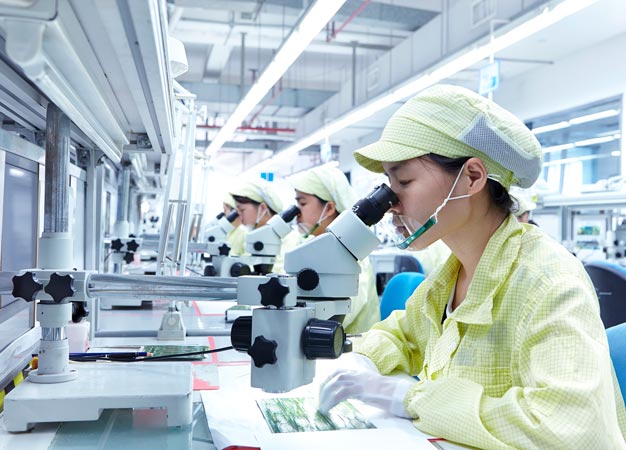Economic researchers dismiss growing concerns about the negative impact of globalization
Published online 27 July 2017

Many people view the globalization of production as a threat, but a recent study shows that investing in foreign countries can actually boost the domestic economy.
© Philippe Roy/Cultura/Getty
There has been a backlash against globalization, as evidenced by the Brexit vote in the UK and the election of Donald Trump as US president, both in 2016. Increasingly, people are viewing corporate investment abroad as a threat to employment in their home countries.
A recent study shows that the opposite may be true ― setting up or acquiring companies in foreign countries, known as foreign direct investment (FDI), "does not necessarily hollow out the domestic economy, but rather it could help raise productivity at home," says Toshiyuki Matsuura, an econometric researcher at Keio University1.
Conventionally, econometric researchers have investigated how FDI affects domestic performance at a company level. But such studies tend to be too broad and have led to conflicting conclusions. Matsuura and his collaborators hoped that a more focused study based on appropriately selected data would give more consistent results.
By considering FDI at a plant level, the study by Matsuura and colleagues provided a more detailed analysis than previous studies. It was based on two sets of Japanese government data about overseas affiliates. The team looked at more than 2,700 plants of 2,100 manufacturers in the electrical machinery and electronics industry from 1985 to 2003. They selected this industry because it has the most FDI among all Japanese industries.
Matsuura and co-workers introduced new definitions for FDI. Conventional studies consider two types of FDI: horizontal FDI (HFDI) for investment in developed countries and vertical FDI (VFDI) for investment in developing countries. But Matsuura and colleagues defined HFDI as producing the same products both abroad and at home and VFDI as relocating a part of the production process (for example, assembly) to overseas.
In their analysis, Matsuura's team added various variables to conventional methodologies to minimize possible biases and calculated a key index called the total factor productivity.
The outcome was consistent with what the researchers had predicted ― VFDI significantly raised productivity in Japan, whereas HFDI had no clear effect on productivity. This finding differed significantly from those of some firm-level analyses.
The team also found that VFDI in East Asia greatly improved productivity in Japan. "We had thought that most companies produced parts in Japan and assemble them abroad where labor is cheaper, but we actually discovered that many companies do the opposite and that many labor-intensive upstream activities are still done in Japan," Matsuura says.
The study's findings have important implications for Japan's economic strategy. "It is important for policymakers to encourage companies to invest more abroad in order to raise national productivity," notes Matsuura.
Reference
- Hayakawa, K., Matsuura, T. & Motohashi, K. How does FDI affect productivity at home?: Evidence from a plant-level analysis. Journal of Industry, Competition and Trade 16, 403-422 (2016). | article